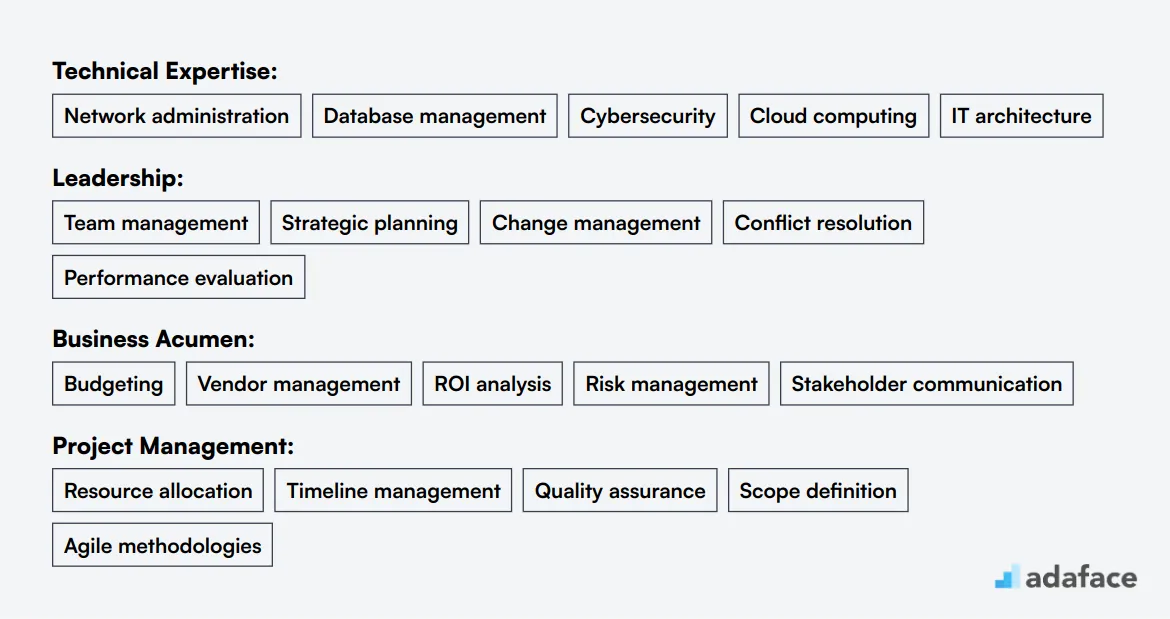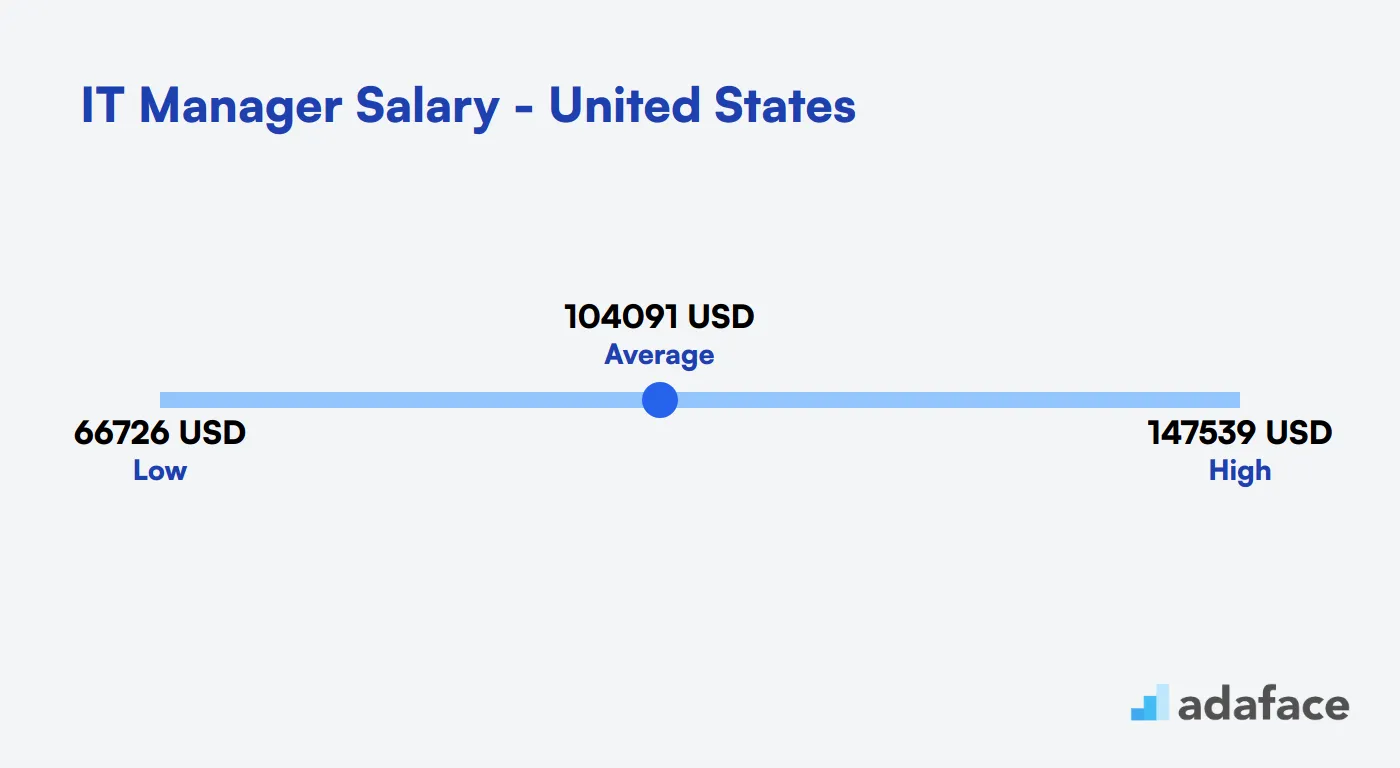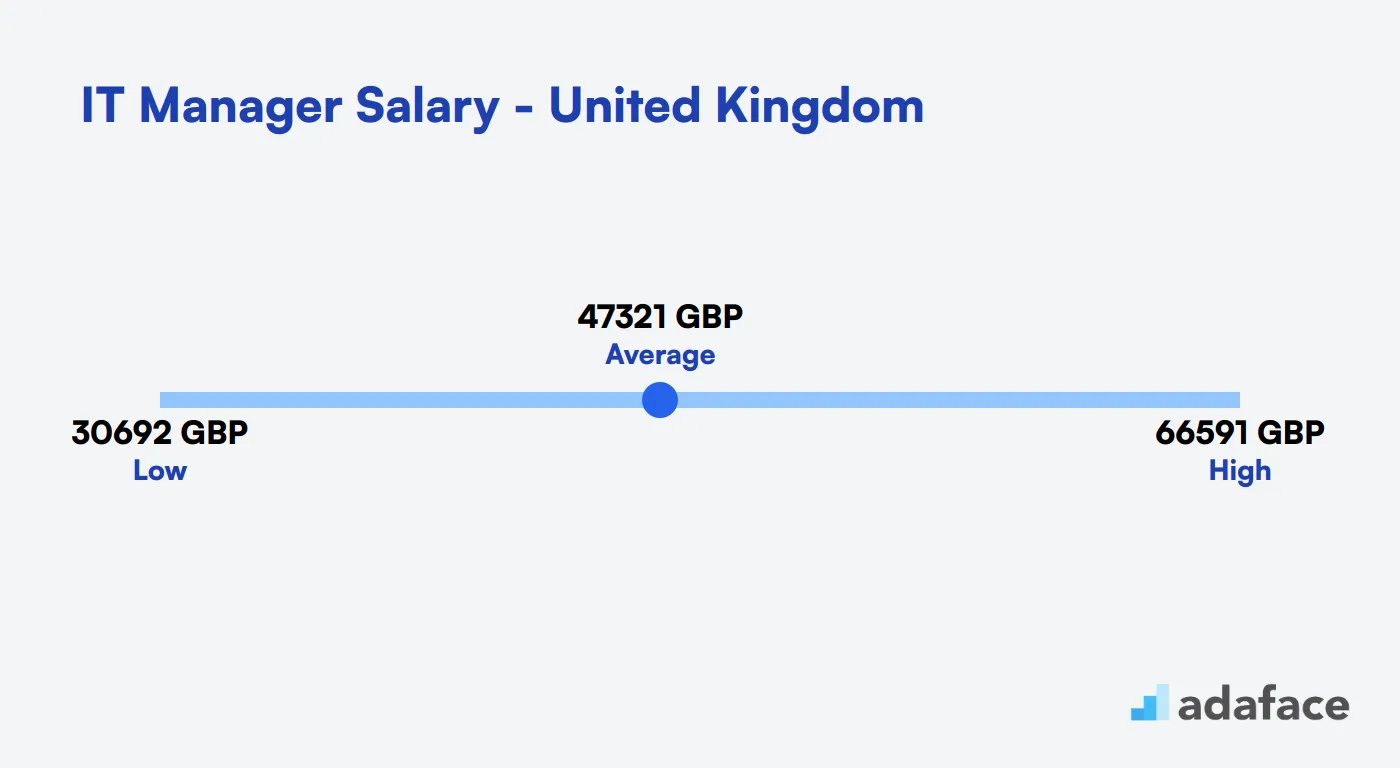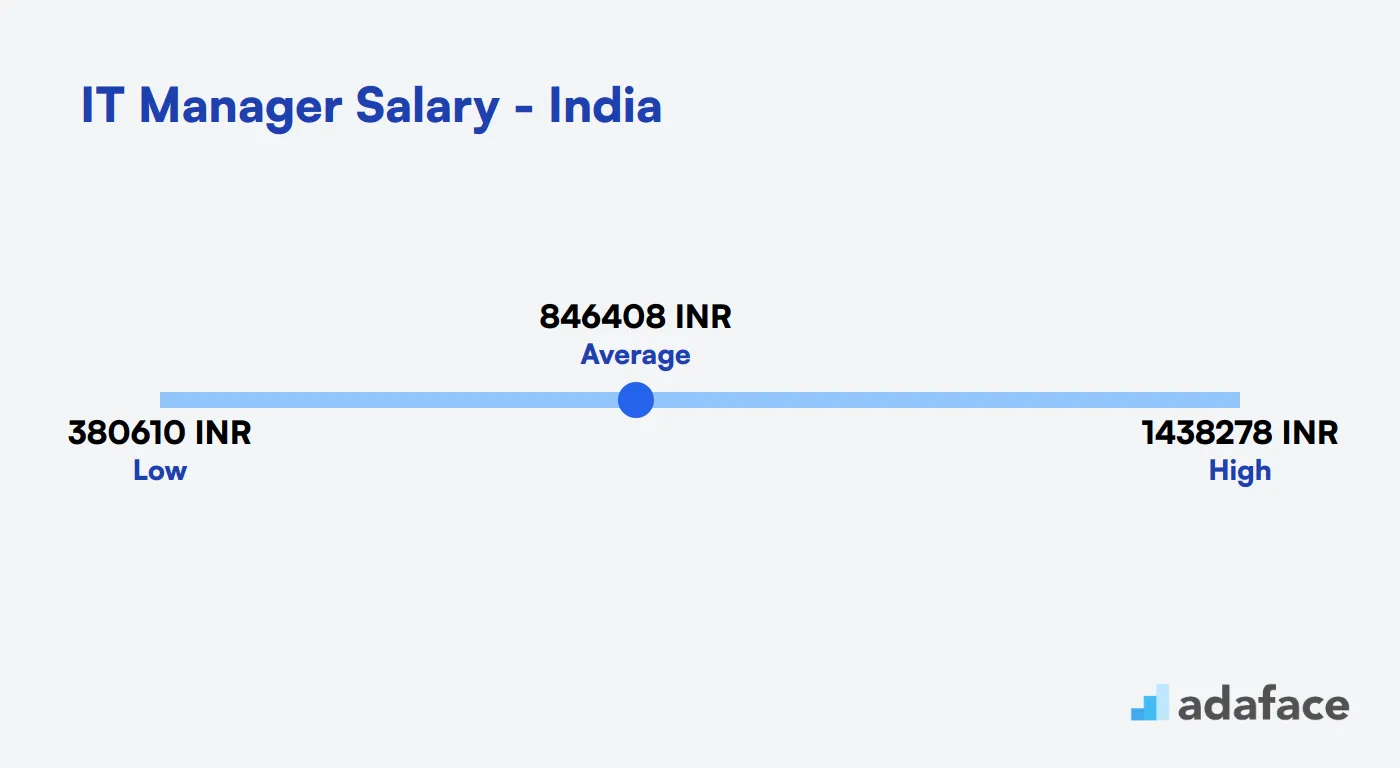Hiring an IT Manager is a critical task for any organization looking to optimize its technological infrastructure and drive digital innovation. Many companies struggle with finding the right balance of technical expertise, leadership skills, and business acumen in their IT Manager candidates. The role requires someone who can not only manage complex IT systems but also align technology strategies with overall business objectives.
This guide will walk you through the process of hiring an IT Manager, covering everything from crafting an effective job description to conducting insightful interviews. We'll also explore IT skills assessments and other tools to help you identify the best candidates for this pivotal role.
Table of contents
IT Manager Hiring Process
Hiring the right IT Manager is key to ensuring the smooth operation of your organization's technology initiatives. Let's walk through a standard hiring process for this role.
- Craft a clear job description: Start by drafting a comprehensive IT Manager job description that outlines responsibilities, qualifications, and expectations.
- Post the job listing: Share your job description on relevant job boards and platforms. Monitor the applications as they start rolling in, typically within the first week.
- Screen resumes: Shortlist candidates whose experience and skills align with your requirements. This initial screening can take a few days.
- Skill assessment: Use skill tests or case studies to evaluate the candidates' technical proficiencies. This phase may take about a week.
- Conduct interviews: Progress shortlisted candidates to the interview rounds. Typically involves multiple stages to assess both technical and interpersonal skills.
- Extend an offer: Once you've identified the best candidate, move swiftly to the offer stage.
In total, the process may take 4-6 weeks. This timeline allows for thorough assessment and interviewing. In the following sections, we'll dive deeper into each step with tools, tips, and detailed guidelines.
Skills and Qualifications for IT Manager Roles
When hiring an IT Manager, the challenge often lies in striking the right balance between required and preferred skills. It's easy to get this wrong without a clear candidate profile. This role needs a mix of technical expertise and leadership qualities that align with your company's specific demands.
To ensure clarity, it's important to distinguish between what's required and what's preferred for the role. Key required skills typically include a Bachelor's degree in Computer Science and a track record of managing IT teams. However, having certifications like ITIL or experience with cloud technologies can be highly advantageous in technical assessments.
| Required skills and qualifications | Preferred skills and qualifications |
|---|---|
| Bachelor's degree in Computer Science, Information Technology, or related field | Master's degree in IT Management, MBA, or related field |
| 5+ years of experience in IT management or leadership roles | ITIL, PMP, or other relevant IT certifications |
| Strong knowledge of IT infrastructure, systems, and security | Experience with cloud technologies and digital transformation initiatives |
| Excellent project management and organizational skills | Knowledge of data analytics and business intelligence tools |
| Proven track record of leading and developing IT teams | Familiarity with agile methodologies and DevOps practices |
How to Write an IT Manager Job Description
Once you've identified the ideal candidate profile for your IT Manager role, the next step is crafting a compelling job description to attract top talent. Here are some key tips to create an effective IT Manager job description:
- Highlight key responsibilities and impact: Clearly outline the IT Manager's role in overseeing technology infrastructure, managing IT staff, and aligning IT strategies with business goals.
- Balance technical requirements with leadership skills: List specific technical expertise needed, such as network administration or cybersecurity, alongside crucial leadership abilities like team management and budget planning.
- Showcase your company's tech environment: Describe your organization's IT landscape, ongoing projects, and growth opportunities to appeal to ambitious professionals.
- Include relevant certifications: Mention preferred certifications like ITIL, PMP, or CISSP to attract qualified candidates with industry-recognized credentials.
Top Platforms to Find IT Manager Talent
Now that you have a solid job description, it's time to list your IT Manager position on job boards to attract qualified candidates. The right platform can make a significant difference in the quality and quantity of applicants you receive. Let's explore some of the best options available.
LinkedIn is ideal for full-time positions due to its professional network, allowing you to easily connect with qualified candidates across various industries.

Indeed
Indeed is a comprehensive job board widely used for full-time role listings, providing access to a large pool of candidates.

Upwork
Upwork is well-suited for freelance and remote roles, offering a platform to connect with freelance IT managers globally.

Other notable platforms include FlexJobs for remote positions, Toptal for high-quality freelancers, Glassdoor for roles where company reputation matters, Dice for tech-specific talent, AngelList for startups, Monster for broad reach, and Remote Tech Jobs for telecommuting positions. Each platform caters to different needs, so consider your specific requirements when choosing where to post your IT Manager job listing. Remember to use skill assessment tools to evaluate candidates effectively once you start receiving applications.
Keywords to Look for in IT Manager Resumes
Resume screening is a key step in finding the right IT Manager. It helps you quickly identify candidates with the most relevant skills and experience before moving to interviews.

When manually screening resumes, focus on keywords that match the job requirements. Look for technical expertise like network administration, database management, and cybersecurity. Also, scan for leadership skills such as team management and strategic planning.
AI tools can streamline the resume screening process. You can use AI-powered screening tools to quickly filter resumes based on predefined criteria and job-specific keywords.
Here's a sample prompt for AI-based resume screening:
TASK: Screen resumes for IT Manager role
INPUT: Resumes
OUTPUT:
- Name
- Matching keywords
- Score (out of 10)
- Shortlist (Yes/No/Maybe)
KEYWORDS:
- Technical: Network administration, Database management, Cybersecurity, Cloud computing
- Leadership: Team management, Strategic planning, Change management
- Business: Budgeting, Vendor management, ROI analysis
- Qualifications: Bachelor's in Computer Science, 5+ years IT management experience
- Certifications: ITIL, PMP
Customize this prompt based on your specific IT Manager job requirements.
Recommended Skills Tests for IT Manager Assessment
Skills tests are a key component in evaluating IT Manager candidates. They provide objective insights into a candidate's technical abilities and leadership potential. Let's explore the most relevant tests for this role.
IT Skills Test: This IT test assesses a candidate's broad knowledge of information technology. It covers areas like networking, cybersecurity, and database management, which are core to an IT Manager's role.
Project Management Test: IT Managers often oversee complex projects. A project management assessment evaluates their ability to plan, execute, and monitor IT initiatives effectively.
Leadership and Communication Test: Strong leadership is a must for IT Managers. Combining a leadership psychometric test with a communication assessment helps gauge a candidate's ability to guide teams and communicate with stakeholders.
Problem Solving Test: IT environments often present complex challenges. A problem-solving test can reveal a candidate's ability to think critically and find innovative solutions to technical issues.
Cloud Computing Test: With the increasing adoption of cloud technologies, knowledge in this area is valuable for IT Managers. A cloud computing assessment can help identify candidates who understand modern IT infrastructure.
Case Study Assignments to Evaluate IT Manager Candidates
Case study assignments can be valuable tools for assessing IT Manager candidates. However, they come with drawbacks such as lengthy completion times, lower participation rates, and the risk of losing qualified candidates. Despite these challenges, well-designed case studies can provide insights into a candidate's problem-solving skills and strategic thinking.
IT Infrastructure Overhaul: This case study presents a scenario where the candidate must plan and execute a company-wide IT infrastructure upgrade. It tests their ability to balance technical requirements, budget constraints, and project management skills.
Cybersecurity Incident Response: Candidates are given a simulated cybersecurity breach scenario. They must demonstrate their knowledge of security protocols, crisis management, and communication skills while outlining a comprehensive incident response plan.
Digital Transformation Strategy: This assignment asks candidates to develop a strategy for implementing new technologies across an organization. It evaluates their understanding of emerging tech trends, change management, and ability to align IT initiatives with business goals.
How to Structure the Interview Stage for Hiring IT Managers
After candidates pass the skills tests, the next step is to conduct technical interviews where their hard skills are evaluated. While skills tests efficiently filter out unfit applicants, interviews are crucial in identifying the best-suited individuals for the IT Manager role. This stage allows for a deeper understanding of a candidate's capabilities, work style, and problem-solving skills.
To assess a candidate's proficiency, ask questions that explore their experience and approach to technology and management. Examples include: "Describe a project where you implemented a new technology to solve a problem," which highlights their innovation. "How do you prioritize tasks in a high-pressure environment?" evaluates their organizational skills. "Explain a time you managed a team during a technical crisis" assesses leadership under stress. "What strategies do you use for network management?" can reveal insights into their technical expertise link. Finally, "How do you ensure continuous improvement within your IT team?" gauges their commitment to growth and development.
Understanding the Cost of Hiring an IT Manager
Hiring an IT Manager can be a significant investment for your organization. In the United States, the average salary is around $104,091 per year, but this can vary widely based on factors like location and experience. For instance, IT Managers in tech hubs such as San Francisco can earn up to $200,680, while other regions may offer lower compensation.
IT Manager Salary United States
The average salary for an IT Manager in the United States is $104,091 per year. Salaries can vary significantly based on location, with San Francisco at the higher end, offering salaries up to $200,680, while Houston offers a range with a maximum of $142,660. The median salary across the country is $99,221, making IT Management a lucrative career path.

IT Manager Salary United Kingdom
In the United Kingdom, the average salary for an IT Manager is approximately £50,000 per year. Entry-level positions may offer around £35,000, while experienced IT Managers can earn upwards of £75,000 annually. Factors such as location, company size, and industry can influence the salary range.

IT Manager Salary in Canada
The average salary for an IT Manager in Canada is approximately CAD 94,425. Salaries can range from about CAD 63,929 at the lower end to CAD 129,318 for more experienced professionals. Major cities like Toronto and Vancouver offer competitive salaries, with averages around CAD 90,221 and CAD 107,689, respectively.

IT Manager Salary India
The average salary for an IT Manager in India is approximately INR 846,409 per year. Salaries can range from a minimum of about INR 380,610 to a maximum of INR 1,438,279, depending on the location and the individual's experience. Major cities like Mumbai, Bengaluru, and Pune offer higher salaries, often exceeding INR 1,000,000 annually.

What are the ranks of IT Managers?
IT management positions often have overlapping responsibilities, which can make it challenging to distinguish between different roles. Understanding the hierarchy of IT management can help organizations structure their teams effectively and provide clear career paths for IT professionals.
- IT Coordinator: This entry-level position focuses on day-to-day IT operations and user support. IT Coordinators often handle basic troubleshooting, software installations, and assist with network maintenance.
- IT Manager: The next step up, IT Managers oversee IT operations, manage teams, and implement technology strategies. They balance technical knowledge with leadership skills to ensure smooth IT operations.
- IT Director: IT Directors take on a more strategic role, aligning IT initiatives with business goals. They manage larger teams, oversee multiple IT projects, and often report directly to C-level executives.
- Chief Information Officer (CIO): As a top-level executive, the CIO is responsible for the overall IT strategy and digital transformation of an organization. They work closely with other C-suite members to drive innovation and leverage technology for business growth.
- Chief Technology Officer (CTO): While sometimes used interchangeably with CIO, the CTO role often focuses more on external-facing technology strategies and product development, especially in tech-centric companies.
Hire the Right IT Managers for Your Team
Throughout this blog post, we've navigated the nuanced journey of hiring the ideal IT Manager. We've discussed the critical steps including crafting a precise job description, identifying key skills and qualifications, leveraging various platforms for sourcing talent, and structuring the interview process effectively.
If there's one takeaway, it's the impact of using accurate job descriptions and skills tests to enhance your hiring decisions. By aligning candidate skills with your organizational needs, you can better predict success. Consider utilizing IT tests to assess technical expertise, which can help in shortlisting the best-fit candidates.
FAQs
Look for candidates with a bachelor's degree in computer science, information technology, or a related field. Relevant certifications like PMP, ITIL, or CISSP are beneficial. Seek 5+ years of experience in IT, including leadership roles.
Use technical aptitude tests to evaluate their knowledge of IT systems, networking, and cybersecurity. Case studies and practical scenarios can also help assess their problem-solving abilities.
Key soft skills include leadership, communication, project management, strategic thinking, and adaptability. Use leadership psychometric tests and situational judgment questions to evaluate these skills.
Look on professional networking sites like LinkedIn, IT-specific job boards, and through referrals from your tech team. Consider partnering with IT recruitment agencies or attending tech conferences to network with potential candidates.
Start with a phone screening, followed by a technical interview with your IT team. Then conduct a behavioral interview focusing on leadership and problem-solving. Finally, have the candidate meet with senior management to assess cultural fit.
Ask about their experience managing IT projects, handling crisis situations, aligning IT with business goals, and leading teams. Include questions about their approach to emerging technologies and how they stay updated in the field. Check our IT Manager interview questions for more ideas.
The hiring process for an IT Manager can take 4-8 weeks on average, depending on your company's needs and the candidate pool. This includes time for sourcing candidates, conducting interviews, skills assessments, and decision-making.

40 min skill tests.
No trick questions.
Accurate shortlisting.
We make it easy for you to find the best candidates in your pipeline with a 40 min skills test.
Try for freeRelated posts
Free resources



